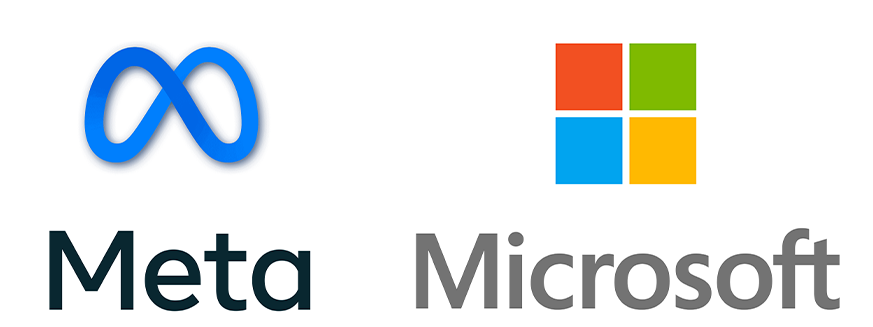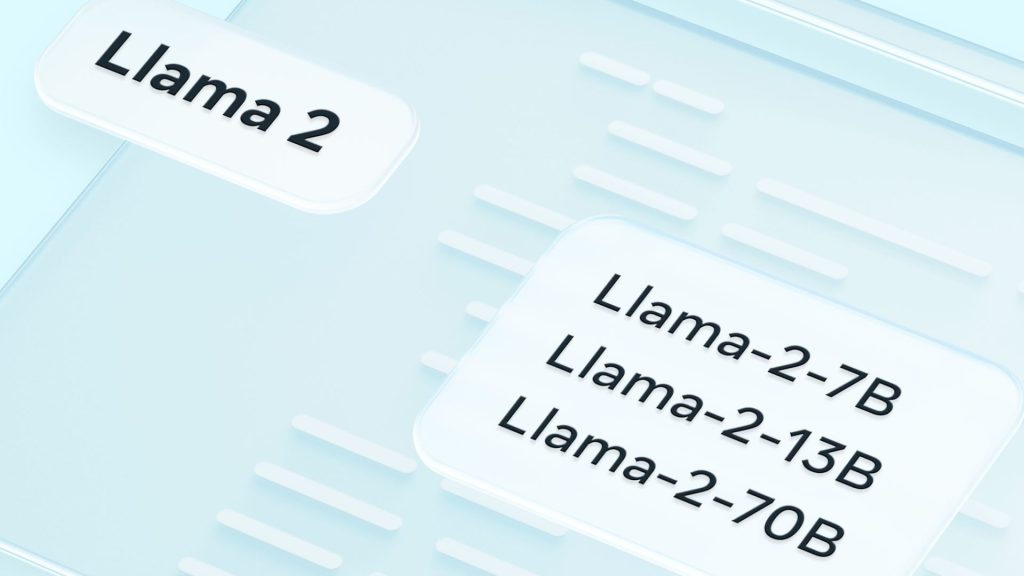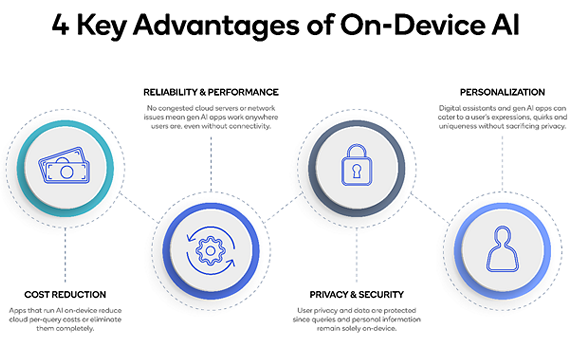
Meta has released the next version of Llama 2 as open source and is offering it for free for both research and commercial purposes. In addition, Microsoft and Meta are strengthening their existing partnership, with Microsoft being the preferred partner for Llama 2 and increasing its focus on generative AI.
Collaboration and Advancements in AI
Meta and Microsoft’s partnership has brought notable advantages to individuals and businesses. They have created an open ecosystem for AI frameworks, collaborated on research papers to push AI forward, and promoted PyTorch adoption on Azure.
Their involvement in the PyTorch Foundation and endorsement of the Partnership on AI’s framework further demonstrate their commitment to collective action in synthetic media development. Moreover, their collaboration extends into the metaverse, unlocking immersive experiences for work and play.

Democratizing Access to AI Technologies with Llama 2
Microsoft and Meta, supported by a diverse global community, are dedicated to democratizing access to AI models. Their shared vision focuses on making foundational AI technologies more accessible to businesses worldwide.
The support for Llama 2 extends to various stakeholders, including companies providing feedback and creating innovative products, cloud providers integrating Llama 2 into their services, research institutions collaborating on responsible deployment, and individuals in the tech, academia, and policy sectors who acknowledge its advantages.
Responsibility at the Core
Meta states that responsibility is a key focus of their open-source approach. They prioritize transparency and have implemented measures to responsibly develop Llama 2. These measures include:
1. Red-Teaming Exercises: Meta conducts rigorous internal and external safety testing, including adversarial prompts and third-party assessments. They continuously invest in safety, fine-tuning, and benchmarking to improve performance.
2. Transparency Schematic: Meta provides a transparency schematic in their research papers, sharing details of fine-tuning, evaluation methods, challenges, and mitigation strategies. This showcases their ongoing efforts to address shortcomings.
3. Responsible Use Guide: Meta has developed a comprehensive guide outlining best practices for responsible development and safety evaluations. It incorporates insights from the industry and AI research community on responsible generative AI.
4. Acceptable Use Policy: Meta has implemented an Acceptable Use Policy to ensure fair and responsible use of the models by prohibiting certain use cases.
Fostering Collaboration and Innovation
Meta has introduced new initiatives to engage the global community in enhancing the performance and impact of Llama 2.
- Open Innovation AI Research Community: Meta has launched a partnership program for academic researchers to deepen understanding of responsible development and sharing of large language models. This community of practitioners will share learnings and collaborate on future research agendas.
- Llama Impact Challenge: Meta aims to leverage the creativity and expertise of innovators worldwide by initiating a challenge that encourages public, non-profit, and for-profit entities to address environmental, education, and other important challenges using Llama 2. The challenge rules will be provided before its commencement.
Qualcomm Technologies and Meta Collaborate to Optimize On-Device AI Execution
Qualcomm Technologies and Meta are partnering to enhance the execution of Meta’s Llama 2 large language models directly on devices, eliminating the need for heavy reliance on cloud services.
This enables the deployment of generative AI models like Llama 2 on smartphones, PCs, VR/AR headsets, and vehicles, resulting in cost savings, enhanced privacy, reliability, and personalized user experiences.
On-Device Llama 2-based AI Implementations for New Applications
Qualcomm Technologies plans to offer on-device AI implementations using Llama 2, enabling the creation of groundbreaking AI applications. This empowers customers, partners, and developers to develop intelligent virtual assistants, productivity tools, content creation software, and entertaining experiences, among others.

The AI capabilities of Snapdragon can function without an internet connection or even in airplane mode. Qualcomm Technologies uses its knowledge of on-device AI and its strong position in the edge computing market to support the growth of the Llama ecosystem through their continued partnership.
Availability and Development Opportunities
Starting in 2024, Qualcomm Technologies aims to provide Llama 2-based AI implementations on Snapdragon devices. Developers can already optimize their applications for on-device AI using the Qualcomm AI Stack, a specialized toolkit that improves AI processing efficiency on Snapdragon chips. This enables the deployment of on-device AI capabilities, even on compact and lightweight devices.
Availability
Starting today, developers utilizing Microsoft Azure can access Llama 2 through the Azure AI model catalog. This integration enables seamless utilization of Llama 2’s content filtering and safety features using Microsoft Azure’s cloud-native tools.
- It has also been optimized to run locally on Windows, providing a smooth workflow for developers as they deliver generative AI experiences to customers on various platforms.
- Additionally, Llama 2 can be accessed through Amazon Web Services (AWS), Hugging Face, and other providers.
Announcing the updates, Meta shared:
Our experience has shown us the advantages of an open source approach. Our engineers created frameworks such as React and PyTorch, which are now industry standards. We believe that sharing large language models like Llama 2 will promote the development of beneficial and safer generative AI.
